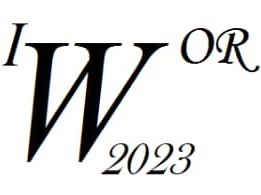Ponente
Descripción
Evaluating the impact of an intervention is of vital importance for decision-making based on scientific evidence. In contrast to classical schemes, Bayesian Structural Time Series (BSTS) models allow inferring the time evolution of the attributable impact, incorporating empirical background on the parameters in a fully Bayesian treatment, and flexibly accommodating multiple sources of variation. The BSTS models are not well known and little used in practice. The objective of the work is to show the results of a bibliometric study on the scientific literature referring to the use of the BSTS models in the inference of the causal impact, as well as a critical review of the recovered literature.
Literature on the subject was retrieved from the Web of Science database and from the Scopus collection. The analysis included indicators that describe information about the authors, institutions, most relevant publications, countries that dominate the subject, etc. For the analysis and visualization of the results, the Biblioshiny application was used, interface of the bibliometrix package, included in the statistical software R.
A total of 72 publications on the use of the Bayesian Structural Time Series in the inference of the causal impact of both collections were retrieved. The first publications on the subject appeared in 2015. A tendency to increase productivity on the subject is observed. Most of the publications are carried out in journals with a high impact factor. The United States is the leading country on the subject. The article by Brodersen et al. (2015) laid the foundations for subsequent developments and applications, being the most cited. New apps emerge as a result of the COVID-19 pandemic. The introduction of libraries such as Causal Impact and BSTS encouraged and facilitated the use of this approach.
Keywords: Bayesian Structural Time Series, causal impact, bibliometrix, bibliometric study

